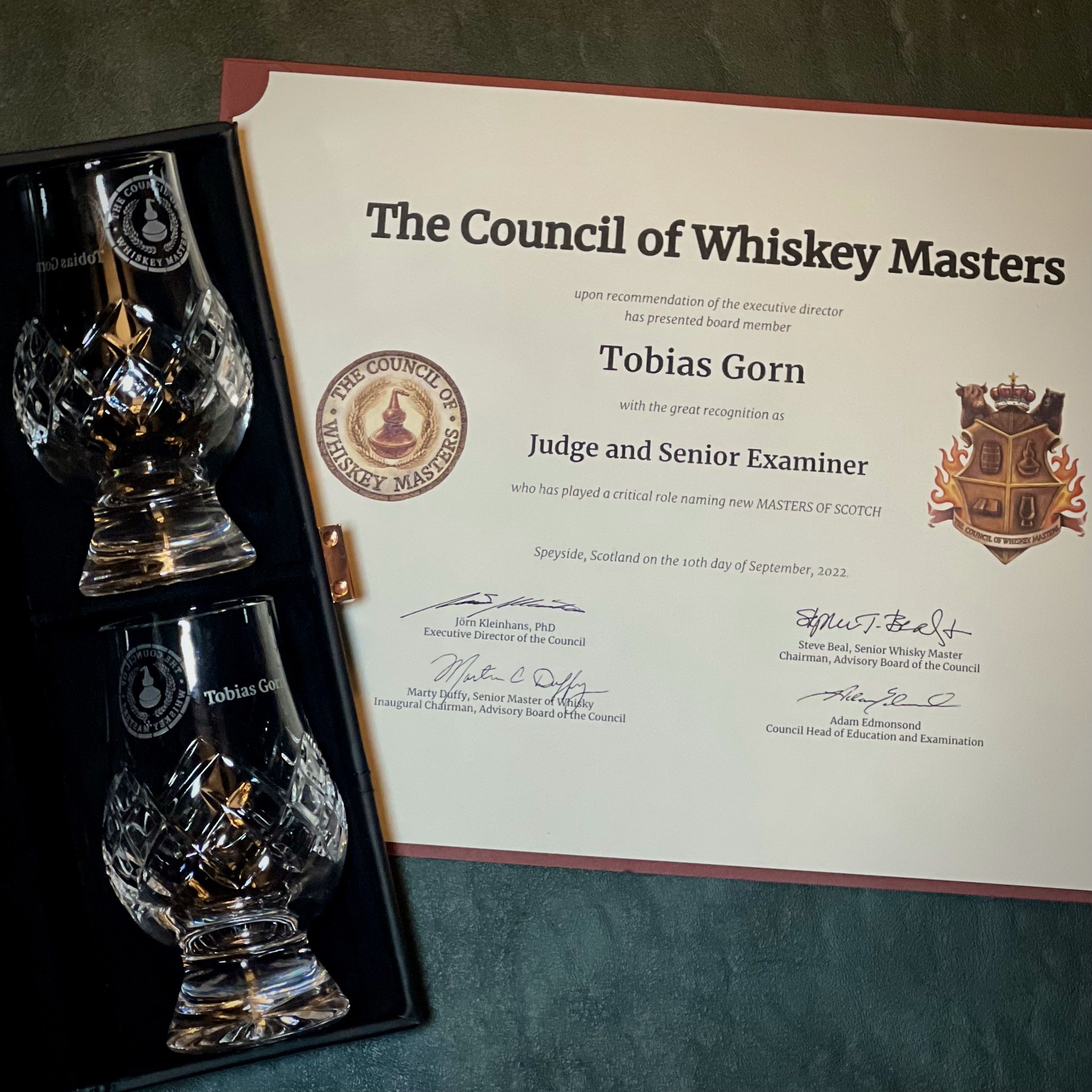Council of Whiskey Masters

The Masters of Whisky Exams form an exam panel chair’s view by Tobias Gorn - Exam Panel Chair of the CoWM
It is a great honour to be selected to be one of the examination panel chairs at the Council of Whiskey Masters’ first ever Level 4 Master of Whisky exams. This is a report of my experience, and I hope it will help future candidates on their journey:
The Council of Whiskey Masters Exam earlier in 2024 itself was perhaps similar to the first Master of Wine or Master Sommelier exams with great significance and being a milestone of the world whiskies industry. These are historical moments and legendary times. Similar to what we were doing in early 2024, and I must say it was an experience that is hard to forget. It was necessary to record some of the experiences to help future candidates and fellow examiners.
The event was the Master of Scotch and Master of Bourbon exams - these are the third level of the Council of Whiskey Masters route- and we had the first ever master of Whisk(e)y exams on the beautiful Isle of Raasay in Scotland.
The high pressure on the candidates needs to be managed and almost taken off by a good chair examiner and the team. Helping the candidates to perform well and creating ideal exam conditions is crucial, and it is the most important mission of the chairperson.
Examiners are always well prepared, and we have the best questions ready with precision. A good question at this level is not some nitpick about some tiny detail that not even the distiller would know who’s operating that particular distillery or something that has as much relevance to modern whisky and the name of Queen Victoria’s favourite pet concerning the foreign affairs right now in this very moment. A good exam question lets the candidates demonstrate their knowledge, and a good candidate will do that exactly.
The right way to demonstrate that knowledge is an easy task: avoid making things up, but a little extra and colourful explanation is always welcome as this is not just a technical or history exam. A nice, confident, factual, straightforward answer is always the best. With blind tasting, it is most important to create an impressive and informative note and some technical conclusions. Reverse engineering the notes and recognising specific distilleries too early can mislead the taster, and the quality of the assessment gets derailed easily. Best to have a bit of self-confidence and to go with an excellent factual tasting note that is a good description of the actual liquid instead of falsely recognising something and putting the wrong tasting note to the sample because of that. Some buzzwords need a little more explanation at the master’s level. Perhaps “balanced” is the one that is the most misused. A master level taster would explain what is balanced by what. Sweetness with savoury notes? The lifting heat of alcohol by some smooth creamy wood notes? The intensity on the nose followed similarly on the palate and the finish. All of them are great observations, but “balanced” is just not enough at this level.
This exam is all about knowledge and how the knowledge being demonstrated is an important aspect of it. It is also equally important to test the candidate on being a good and understanding, passionate and excellent ambassador of whiskies and a great spokesperson of the industry. It is not just about distilling equipment, dates from the early Industrial Revolution or obscure types of oak but the ability to demonstrate knowledge that is relevant to pass onto the general public and a good captive audience of a Master of Whisky (or Scotch or Bourbon, etc).
The candidates are here to demonstrate that they are good at communicating whisky as a true master. It is not just about dull lexical knowledge and learning books. That is just easy and incredibly boring, but not too hard to pick up after all. There are some Masters of Wine and Master Sommeliers out there who are k credibly geeky and dull for the average consumer, but they are not on the public-facing side of the business. With hundreds of top wine experts, they can afford that, but we only have 32 Masters out there right now, and they have to be equally good at knowledge and communicating it to the public as a true ambassador.
This article is not about the candidates but about how to help the perfect candidate demonstrate a great deal of knowledge and ability to communicate a superior whisky presence with great insights and a nice ambassadorial manner. The senior examiners’ job is to keep the panel balanced and fair and to let the candidates have equal opportunities to shine. Our job, after all is to run the exam smoothly, including less obvious tasks like timekeeping and making sure our timeline is even and also to help everyone in the room to be safe and as relaxed as a high-stakes, top exam room can be. It is my pleasure to take the responsibility of this role and to try my best to make sure the candidates show their best.